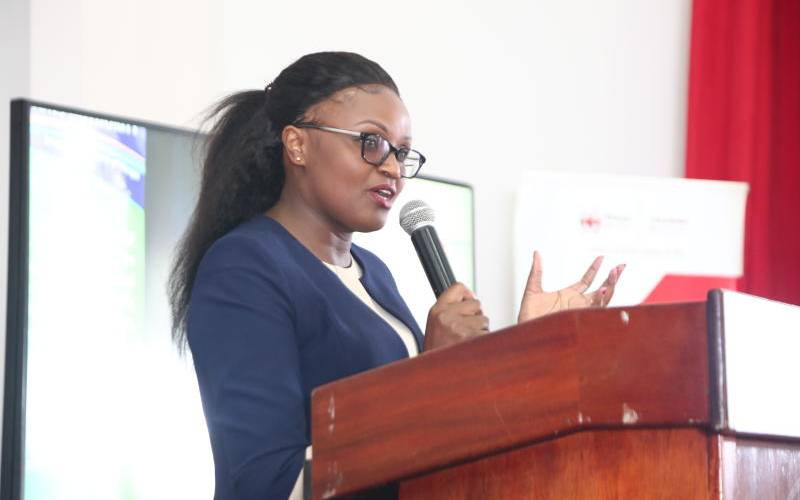×
The Standard e-Paper
Stay Informed, Even Offline

KNQA CEO Dr Alice Kande, making a keynote speech during accreditation of Kenya Redcross Training Institute by Kenya National Qualifications Authority at Boma hotel on January 17, 2023. [Silas Otieno, Standard]
It has emerged that fake academic papers still remain a challenge that must be confronted by the government to guarantee the credibility of Kenya's education.